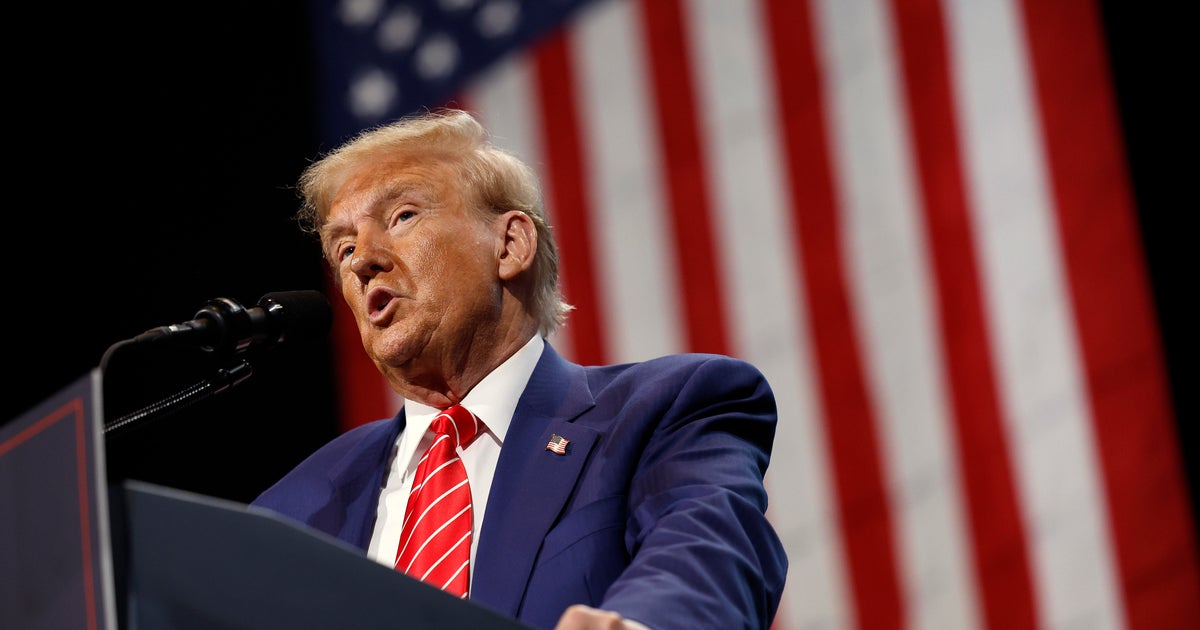Judge Tanya Chutkan on Thursday denied former President Donald Trump’s request to delay the unsealing of court documents and evidence in the 2020 election interference case until after the election and said the court would release evidence submitted by the government on Friday.
In her five-page order, Chutkan said there was a presumption that there should be public access to “all facets of the criminal proceedings” and that Trump, in arguing that the material should remain sealed, had not made any arguments relevant are one of the factors that could be considerations. Instead, Trump’s lawyers argued that keeping it under wraps for another month “will serve other interests,” Chutkan wrote. “Ultimately, none of these arguments are convincing.”
She had been given the task of deciding whether the attachment and the briefing filed by Special Prosecutor Jack Smith earlier this month should be made available to the public, but some information would have to be kept secret. Chutkan allowed the letter to be made public last week, although it contained redactions of the names of alleged co-conspirators, campaign staff and White House officials, as well as certain references to grand jury proceedings.
Shortly after Trump pushed back against any additional disclosures, Chutkan granted Smith’s request to submit the appendix containing his proposed redactions to the public docket. But she also granted Trump’s request to delay her decision for seven days while he explored his options for further litigation.
The special counsel indicated that much of the annex contains sensitive materials that should be shielded from the public. That evidence, subject to a protective order issued at the start of the case last year and likely includes transcripts of grand jury testimony and FBI interviews.
Trump’s lawyers had said Chutkan should not allow the release of additional information now, claiming in a filing that the “asymmetric release of indicted charges and related documents during early voting creates a troubling appearance of election interference.”
Chutkan denied that this would be an “asymmetric release,” pointing out that the court “did not limit public access to just one side.” She said Trump had the freedom to present his “legal arguments and factual offers regarding immunity at any time.” before the deadline of November 7, 2024.”
She also said it was Trump’s argument that created the danger of election interference, and not the court’s actions.
“If the court were to withhold information to which the public was otherwise entitled solely because of the potential political consequences of its release, that withholding could itself constitute — or appear to constitute — election interference,” Chutkan wrote. “The court will therefore continue to exclude political considerations from its decision-making, instead of including them as the suspect requests.”
She said the court would place the attachment containing Smith’s proposed redactions in the public docket in a separate order on Friday.
The procedure in the case against Trump was revived in August after the Supreme Court ruled that former presidents are right to some immunity of criminal prosecution arising from official acts committed during their stay in the White House.
Prosecutors requested a new indictment against Trump to comply with the Supreme Court’s decision, which contained a narrower set of allegations and removed references to his conversations with Justice Department officials. The court’s conservative majority found that these interactions were prohibited for plaintiffs.
Trump was initially charged in August 2023 with four charges stemming from what Smith alleged was a scheme to undermine the transition of power following the 2020 presidential election. The former president still faces the same four charges in the new indictment and has pleaded not guilty.
The two sides are now debating whether the conduct alleged in the scaled-down indictment is protected by presidential immunity, a decision that will ultimately be made by Chutkan. Trump’s lawyers have said they will do so again to have to search for the entire case was dismissed on presidential immunity and other grounds.
Robert Legare and Melissa Quinn contributed to this report.
